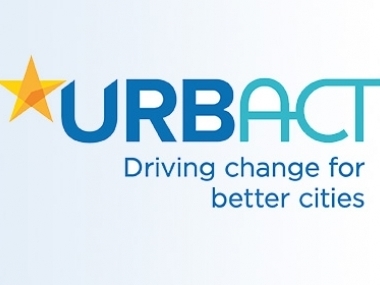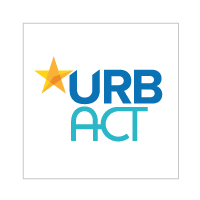Building on the needs of cities for the next generation of URBACT
Edited on
19 July 2021Work is already underway to set the basis for URBACT IV, 2021-2027.

We asked what cities need
URBACT is known for listening to the needs of cities, and the preparation of the next URBAC T programme is no different. As part of the background work, a user-needs survey was circulated to cities, national representatives and other interested parties to gather their input. Questions covered cities’ challenges and their means to tackle these challenges, as well as ideas for future focus areas and activities of URBACT IV.
Conducting a users survey at this time was also important because there has been a significant evolution in the urban policy environment since 2014, with the launch of EC initiatives like Urban Innovative Actions, intergovernmental collaboration on the Urban Agenda for the EU and elaboration of the New Leipzig Charter, focused on the concepts of “green, just and productive” cities. Identifying the needs of cities and the key added value of URBACT in this context has never been more important.
The questions asked built directly on the key challenges identified in the 2019 Future of Cities Report(link is external) (Joint Research Centre), namely climate change, social segregation, health & wellbeing, sustainable services & local economy. This also ensured that questions and answers could be linked closely to cohesion policy objectives and main principles of the new Leipzig Charter.
In the space of one month, the survey gathered an impressive 532 responses from nearly all URBACT member countries. The largest group of responses (322) came from towns and cities. Furthermore, the responses were well spread across cities of all sizes - from towns with less than 20 000 inhabitants, through to cities of over two million.

Around 40% of the participants indicated they had never taken part in an URBACT activity. This shows that interest in the URBACT programme is not limited to the current ‘URBACT community’, which is a very encouraging sign for the programme’s future development.
Here's what cities told us
Reviewing the survey responses, some interesting trends appear. Most strikingly, the respondents of the URBACT IV survey clearly recognise climate as the main priority challenge that cities face, with more than 300 respondents selecting “adapting to climate change impacts, reduce CO2 emissions, reduce the environmental footprint of cities, increase the share of sustainable mobility change” as a top-level challenge.

After climate change, the issue of local services emerges as the second-most priority challenge. More than 200 respondents identified “providing sustainable and efficient public and commercial services, build a strong local economy” as a top priority for cities. It is also striking that the smallest towns most clearly considered the issue of services to be the biggest challenge.
Social and health issues, whilst highlighted less often, were still identified as key challenges for cities. Furthermore, since the survey closed just as the Covid-19 pandemic was having its most dramatic impacts, it is likely that the challenge of health and wellbeing would be given even more importance now.
In terms of the main means to tackle the challenges identified for cities, the two most cited were: 1. “strengthening urban governance and co-create strategies with citizens building on new perspectives and solutions” and 2; “Physical interventions such as the creation of well-designed public or green spaces and urban renewal”. The former clearly signposts URBACT as a potentially key tool for addressing the needs of cities in the future.
Informing the future URBACT IV Programme
The survey responses form just one part of the input into the work of the programming committee that is developing the strategy and actions of the future URBACT programme. The programming committee is made of representatives of each EU member state, and representatives of the European Commission, the Committee of Regions, CEMR and Eurocities.
Already, the survey results have been analysed in light of existing literature - such as the implementation evaluation of URBACT III and the new Leipzig Charter - and interviews with programme stakeholders to inform a detailed ‘Note on cities’ needs and stakeholders’ expectations towards URBACT’. This was produced alongside a ‘Note on the policy environment of URBACT IV.’
Both documents and their main findings were presented to the first meeting of the programming committee on 13 May and used to inform a discussion on the strategic principles on which the new URBACT programme will be based. These seek to retain the core principles of what has made URBACT III so appreciated, while adapting to new opportunities provided by the emerging urban policy framework for the next period.
Programming is expected to continue throughout 2020 and early 2021; with a programme submitted to the European Commission for approval mid-2021.
 Submitted by URBACT on
Submitted by URBACT on
